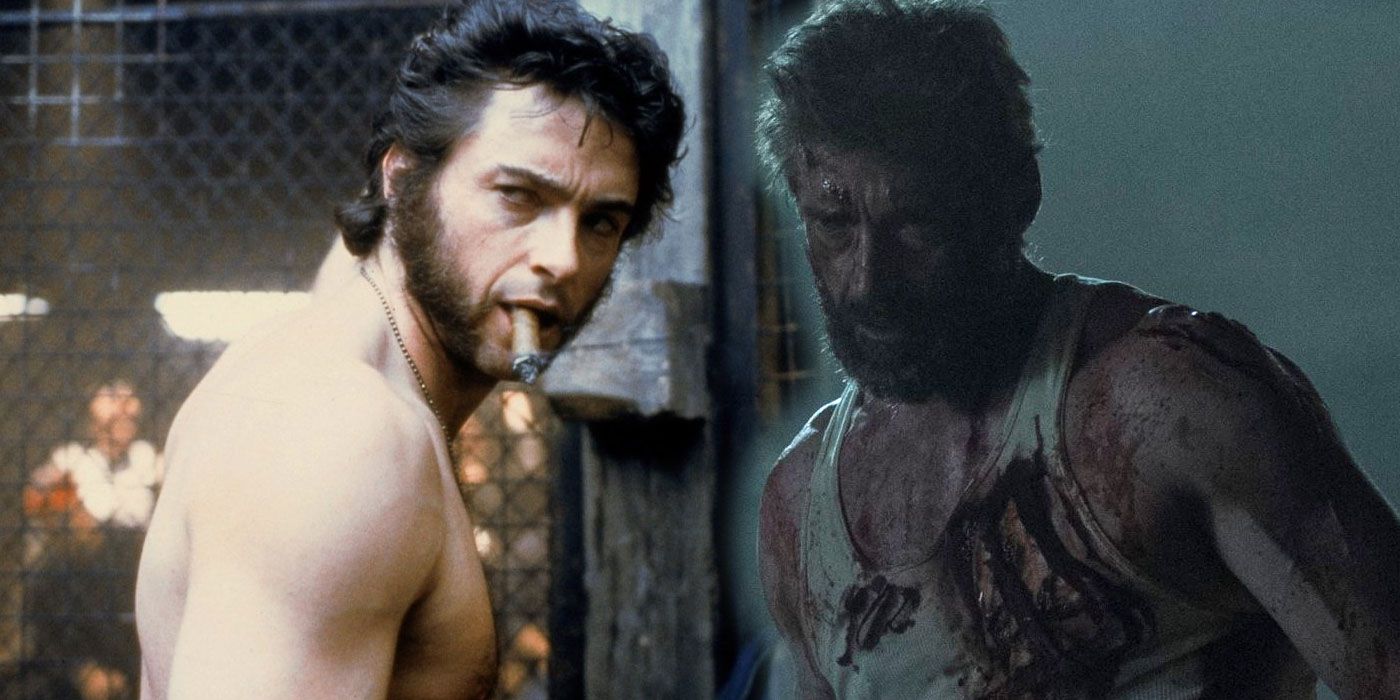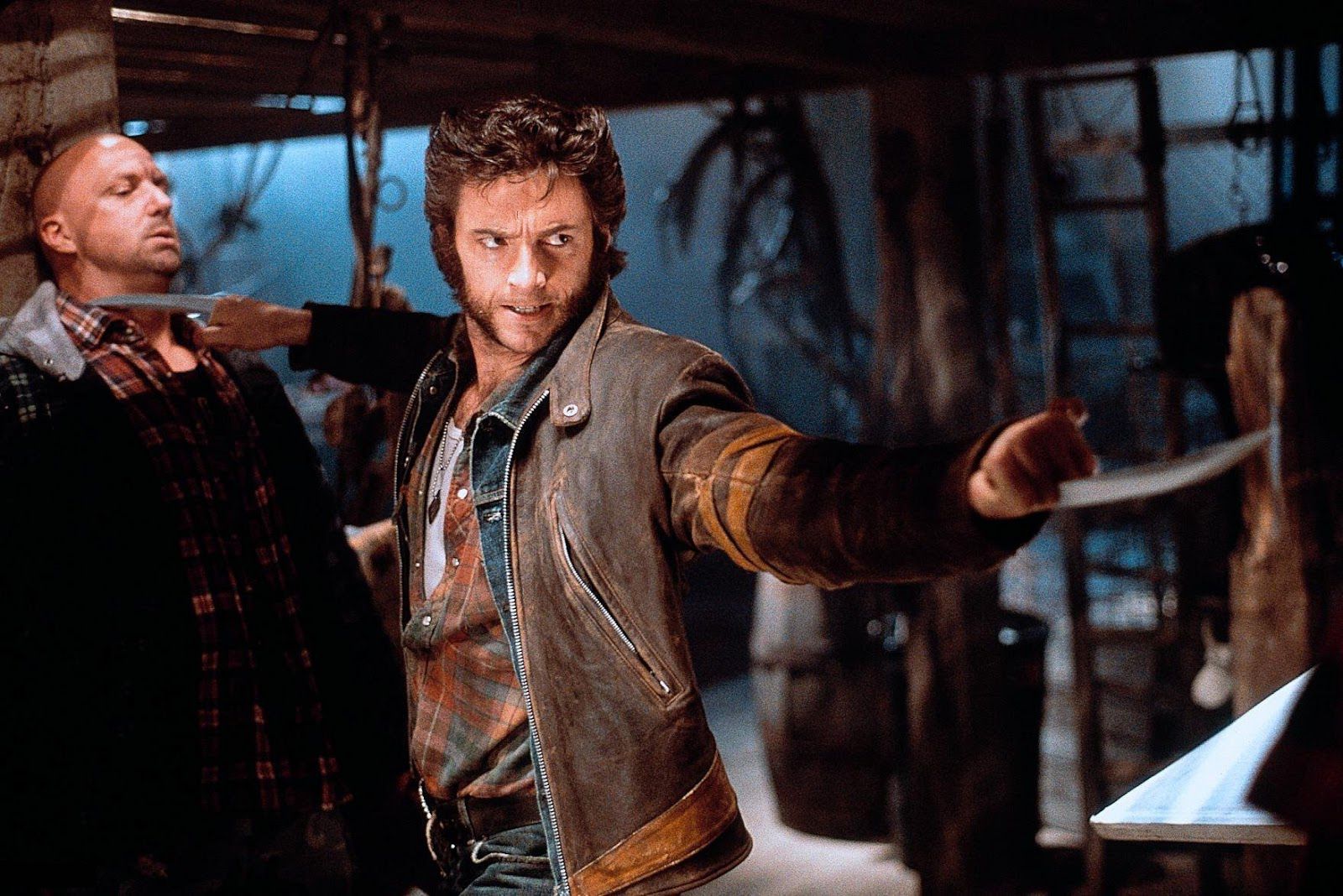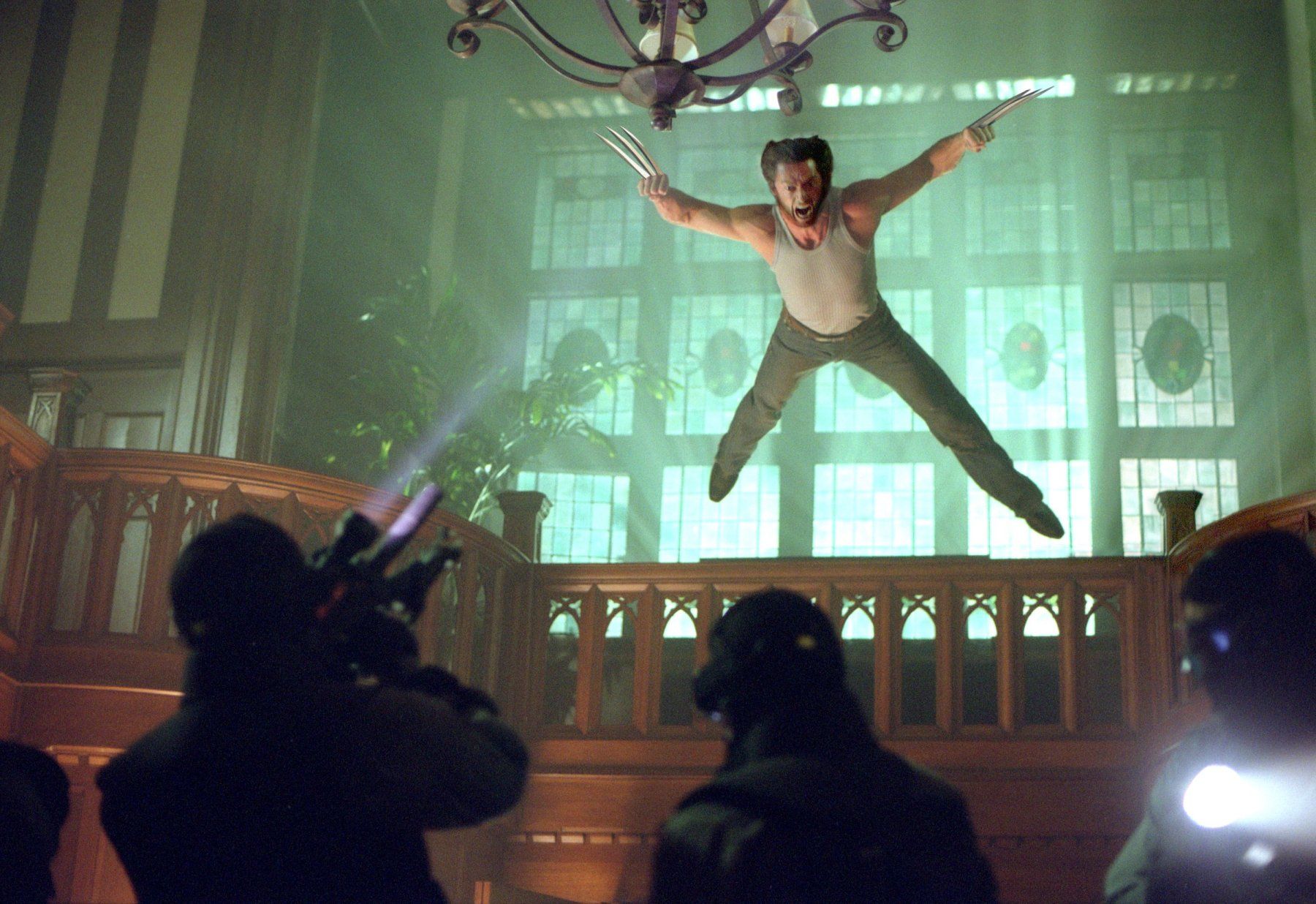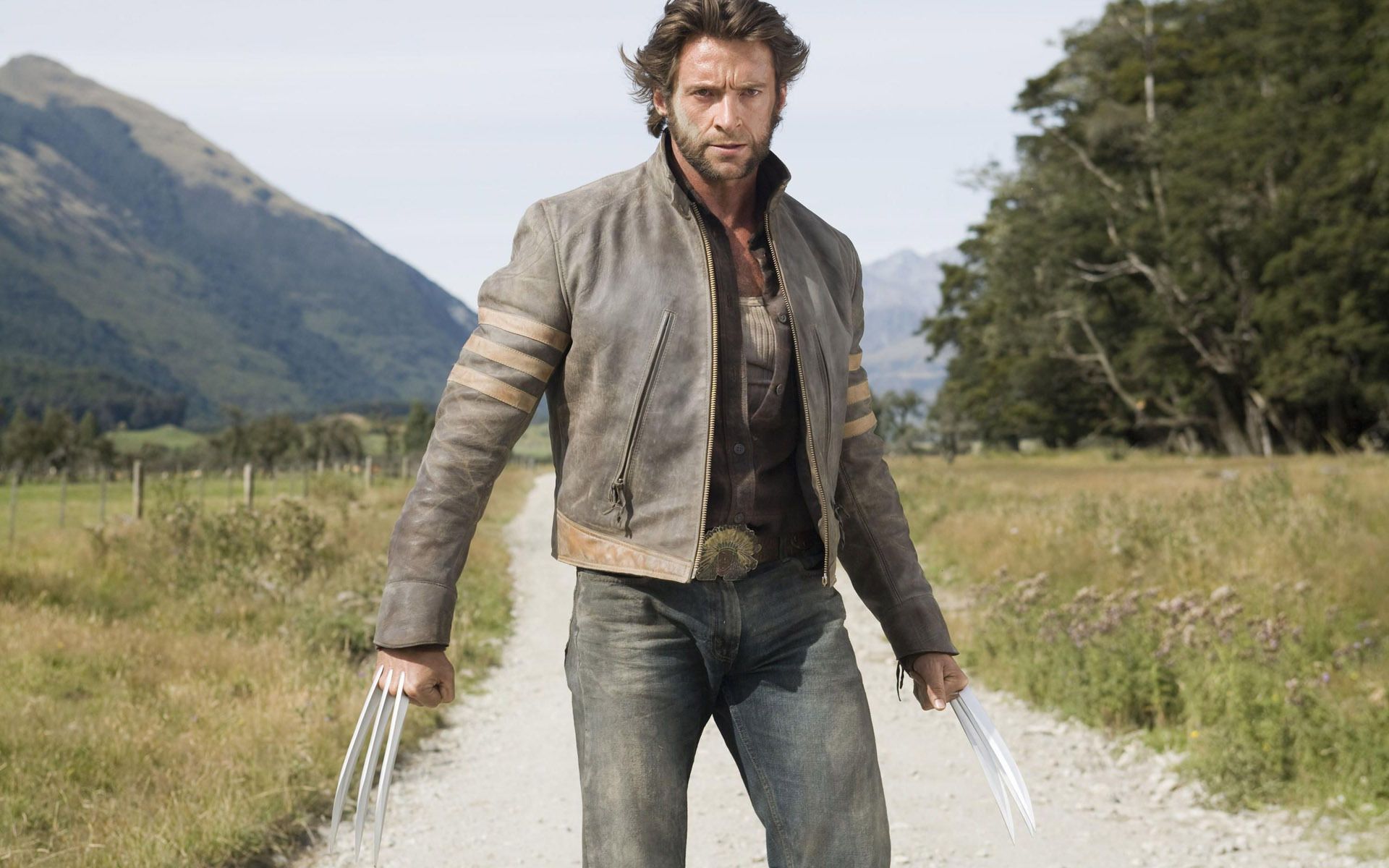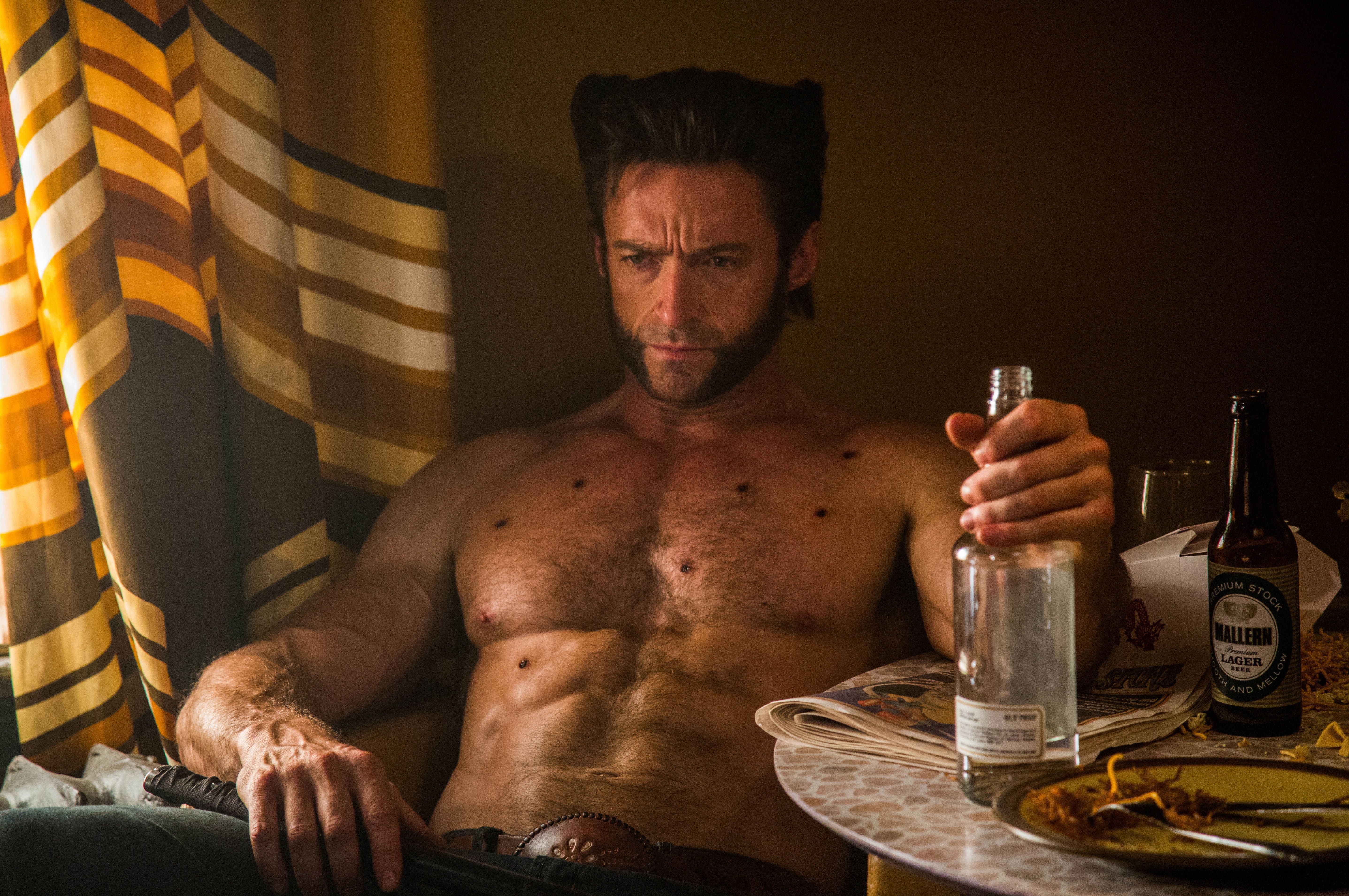You never forget the first.
A stage actor's most enduring theatrical achievement can be to originate a role, setting the tone for the part in all productions to come. Without scripting a line, they imprint onto their character an ineffable, lasting quality, a part of their creative selves. Those that follow may not mimic the first thespian's choices, but even in contrast, they react to the work that first charted the course.
Hugh Jackman wasn't the first actor to portray a superhero in a high-profile Hollywood production, but like the character he played for seventeen years, he was the best there is at what he did.
In films good and bad, soaring and eye-soring, his ever-reliable performances as Marvel's signature mutant were richly imbued with charisma, pathos and above all commitment. And by playing the part during an era when the relationship between movie stars and superheroes was drastically reshaped, he redefined the way we think of both -- or rather, the way we think of those roles as synonymous.
Jackman's big-screen career as Logan -- which began by fortuitous accident when Fox hired him three weeks into filming "X-Men" to replace original cast member Dougray Scott, who was forced to pull out due to a shooting conflict -- hasn't just spanned the length of Hollywood's prolific golden age of comic book superhero films; it's left the star's signature claw-mark on it.
When Jackman was introduced to the movie-going world as the clawed, regenerating degenerate Logan aka Wolverine in Bryan Singer's 2000 "X-Men" film, the only superheroes that qualified as Hollywood movie stars were stalwart DC Comics properties Superman and Batman, whose dual likenesses had dominated screens to varying degrees for decades. Even they were mired in ignominy at the time, both franchises having spun into infantilizing hokiness and fell out of favor with audiences.
Even when occasional flash-in-the-pan adaptations of properties like "Blade" or "Spawn" found modest success, they were seen as the exception to the rule that superhero films were lesser. A notion persisted that blockbusters should feature established stars in traditional action roles, far from the fantastical premises found in superhero comics.
Today, the rule that more often holds is that it is superheroes that turn actors into movie stars. One would be hard-pressed to find a modern "name" actor who hasn't donned a set of super-tights at least once in his or her filmography, as the sequel-friendly movies have blossomed into perhaps the film industry's predominant genre and steadiest revenue stream.
Since the release of "X-Men," in May of 2000, comic book-inspired superhero movies have grown into a genre that dominates the box office: 27 major motion pictures based on either Marvel or DC properties have been among the 10 highest grossing films of their year, and 39 finished among the top 20 earners (per Box Office Mojo). It marks quite a sea change since the days of Superman and Batman's onscreen supremacy as, of those, 31 have been based on Marvel properties against only 8 featuring DC characters.
The only year since Jackman's debut as Logan without at least one major superhero film finishing in the top 15 at the domestic box office was the year that directly followed: 2001 arrived before studios had a chance to adjust to the new super-cinema economy, and probably the last year in recorded history we'll see without a movie starring Marvel or DC characters. (Perhaps fittingly, the other "worst" year at the box office for superheroes was 2009, when Jackman's maligned first solo feature, "X-Men Origins: Wolverine," finished as the highest earning comic book film of the year but was just the [lucky] 13th largest overall domestic haul. That's what they get for doing Deadpool like that.)
It would take a Fastball Special-powered leap to lay the entire responsibility for this massive success at the feet of the man that plays the erstwhile James Howlett, but when the history of the era is told, his will be an inextricable part of it. While Christian Bale may have played the lead in the most critically revered franchise of the period, and Robert Downey Jr. amassed the largest amount of personal fortune and fame in his sprawling role of Iron Man, there's a chance neither would have been willing to take those roles if not for Jackman, who proved on a pioneering stage that playing a superhero could be less a cage and more a runway.
Before anyone else, and more than anyone else, Hugh Jackman made being a superhero seem like a blast. Even when his curmudgeonly character wasn't having fun, Jackman sure seemed to be enjoying himself -- and the world noticed. Jackman had been a Hollywood nobody before landing this leading role, an Aussie with only an "Oklahoma!" credit to his name, but from then, on nearly every one of the increasingly prevalent superhero productions would come with at least one star actor rumored to be attached.
Seemingly overnight, Marvel's trove of treasured characters became among the most sought-after parts in the business. There was a new kind of movie star blueprint: play this part, agents could tell actors, and audiences will see you through the costume. Plus, you'll make bank and can do whatever you like in the franchise's off-years.
For nearly two decades, as other comic book superheroes ascended and descended cinema marquees, as franchises rose and fell and rose again, and characters were cast and recast and recast once more, Jackman's Wolverine remained. Much in keeping for the long-living character, he outlasted generations of contemporaries.
To audiences, Jackman just became more and more, well, Logan throughout the years -- better in the role, more familiar yet always fresh. He gave his character a world-weary composure and cutting sarcasm that effectively convinced audiences that this old fighter had had just about enough over his many decades. From the first film to the last, you believed that he wanted to hang it up, be left alone, and be allowed to keep his claws sheathed. We all knew he'd never be able, but that was the joy of it.
Whether it was throwing a clanging fist-on-fist punch in his introductory "X-Men" bar fight, unleashing his full-on berserker rage for the first time at the X-Mansion in "X2," going through the heartbreak of having to put down/murder his psychotic ladyfriend in "X-Men: The Last Stand," surviving the overwrought bomb of "X-Men Origins: Wolverine," linking the old with the new with his brief but unforgettable "X-Men: First Class" cameo, completing three-quarters of a perfect Japanese adventure in "The Wolverine," reconciling (or redoubling?) the crisis of multiple X-rosters with the time-bending "Days of Future Past," honoring both Barry Windsor-Smith and the greatest action figure of the 1990s with his helmeted Weapon X sequence in the otherwise unwatchable "X-Men: Apocalypse," or culminating it all with a profoundly satisfying and artful resolution in "Logan," Jackman made his hero fun to watch.
Through cinematic highs and lows, the actor seemed to always find inventive ways to elevate the character. Performing in countless scenes with acting royalty Patrick Stewart and Ian McKellan, Jackman was never out of his depth. He made being a fan rewarding, too, by being a cheerful ambassador for and to the X-Men-loving audiences that first conferred him his star status, back when the idea of a movie star serving as a champion of the comics medium to the mainstream was a thing people chose to care about.
Which brings me to something of a confession. I was 15 years old when that first "X-Men" movie hit theaters, and so eager was I to see my favorite brand of heroes take the big screen for the first time that during the run-up to its release, in the perfect storm of childlike glee and adolescent identity development, and as a private act of totemic ritual, I actually grew out my very first facial hair -- (regrettable?) sideburns -- to fashion myself after the world's coolest mutant.
Here's the thing: I grew up in a day when Wolverine was the undisputed biggest star in comics. Wolverine was who Marvel Comics editors slapped on the cover when sales needed a boost. Origin, powers, attitude -- Logan had it all. And for his mystique, he had my undying loyalty. Tear out his Adamantium and turn him into a kitty with a bandanna? I'm there for it. Send him all around the world to fall in love with women whose dooms are thereby guaranteed? One hundred emoji percent in. Burn him all the way to bones just to watch him respawn? I'll squirm, and keep reading.
A tortured, temperamental badass of depth, Wolverine wasn't just cool -- he was impossibly cool. Way too cool to be brought to life. And yet, for nearly two decades, that's exactly what Hugh Jackman achieved.
Now, after the release of the critical and commercial smash, "Logan," Jackman is hanging up his claws, and he can do so proudly. If his second collaboration in the series with director David Mangold isn't truly a perfect movie, it's a perfect movie for that character and that performance. Logan's last ride strikes a winning balance of creative ambition and restraint, and joins genre standard-bearers like "Iron Man" and "Dark Knight" by telling a tale that holds up as well as any of the character's mythos, of any medium.
Jackman spent a career trying to do the part of Wolverine justice, and finally, a movie around him returned the favor. Outside of the remote chance that Fox and Marvel Studios decide to partner on a project allowing Jackman to play with the similarly experienced "Avengers" ensemble, there's not much terrain left for the actor to explore. As such, his last "Snikt!" will stand as his greatest.
Hugh Jackman is walking away from the part of Wolverine in rarified air, like a Hall of Fame athlete exiting the stage after a final championship performance. Despite the Western-inspired eulogy his progeny delivers in the closing moments of "Logan," a look at the Hollywood superhero landscape proves there are many more guns left in the valley than when Jackman's Wolverine first arrived on the scene. But that's no surprise -- they're all following his lead.

